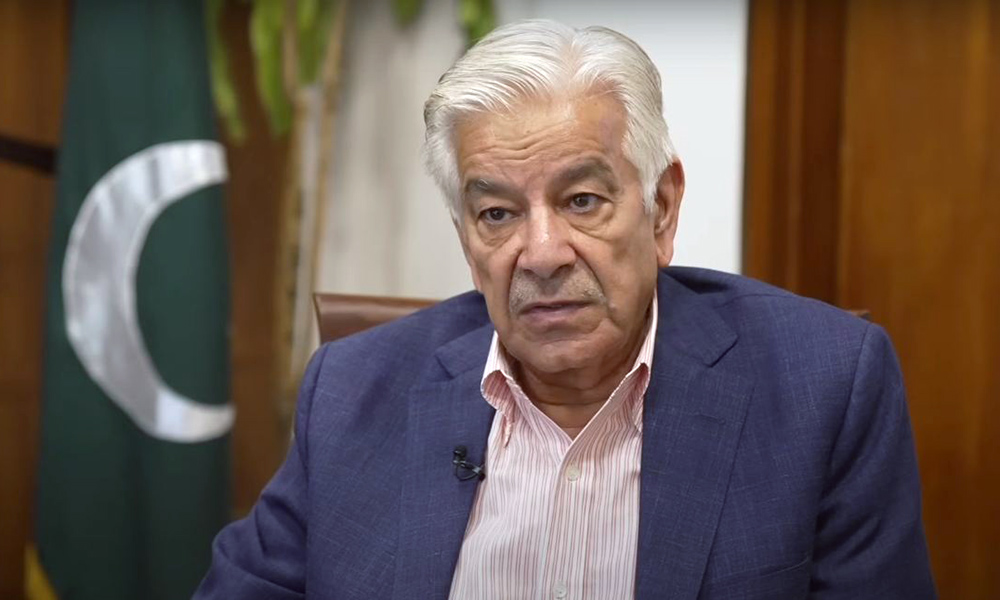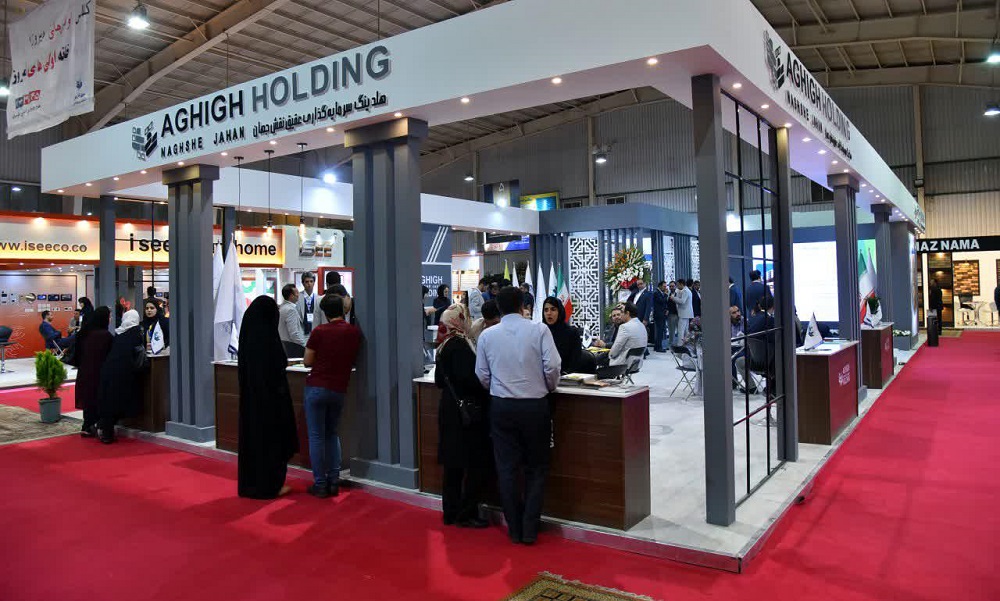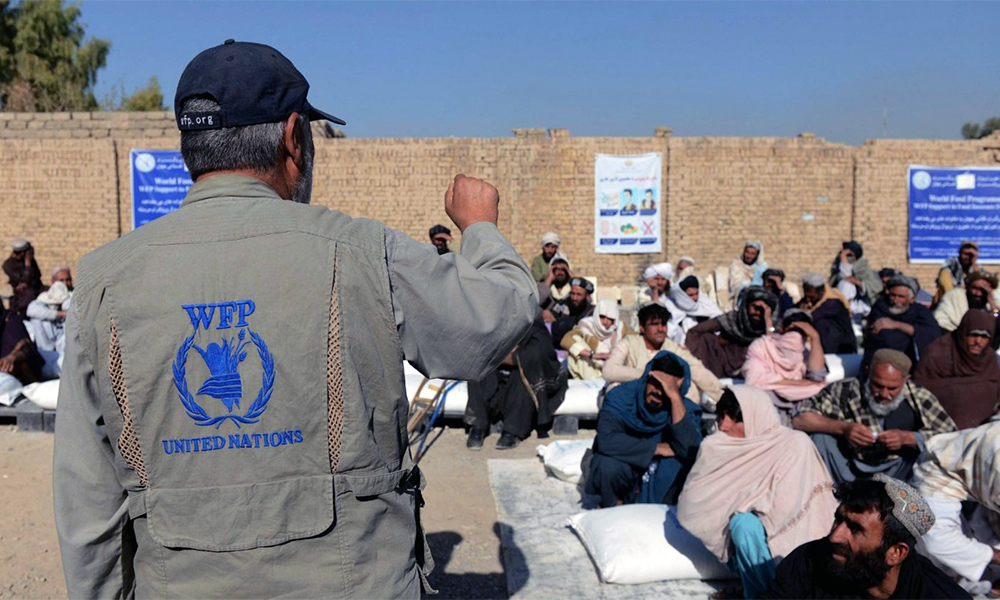Latest News
Pakistan’s defense minister warns of continued strikes against Afghanistan
Islamabad has in the past accused Afghanistan of harboring groups such as TTP. However, the ruling Islamic Emirate of Afghanistan has repeatedly said it will not allow any group to threaten the security of another country from Afghanistan.

Pakistan’s Minister of Defense Khawaja Asif has said Islamabad will continue to launch attacks against Afghanistan as part of a new military operation aimed at countering terrorism.
In an interview with BBC, Asif said Pakistan was targeting groups which Pakistan accuses of carrying out attacks on security forces and civilians, including the Tehreek-e-Taliban Pakistan (TTP) group.
Islamabad has in the past accused Afghanistan of harboring groups such as TTP. However, the ruling Islamic Emirate of Afghanistan has repeatedly said it will not allow any group to threaten the security of another country from Afghanistan.
The IEA has also described the strikes as violations of its sovereignty.
“It’s correct that we have been carrying out operations in Afghanistan, and we will continue to do so. We won’t serve them with cake and pastries. If attacked, we’ll attack back,” Asif told BBC.
In addition he said Pakistan did not forewarn the IEA of impending strikes. “This would eliminate the element of surprise. Why should we tell them, ‘get ready, we are coming’?”
The IEA meanwhile responded by saying the statement was “irresponsible”, BBC reported.
Asif went on to say the IEA has been reluctant to take action against the TTP, despite Islamabad’s requests.
This comes after Pakistan’s recent announcement of a renewed military crackdown to curb violence and attacks in the country.
Related Stories:
IEA warns Pakistan against repeating airstrikes which left 8 dead
US urges Pakistan to exercise restraint after airstrikes in Afghanistan
Latest News
Afghan delegation to participate in Iran’s international expo

Iranian officials have announced that a 200-member delegation, comprising Afghan government officials and private sector representatives, will attend the 7th International Exhibition of Iran’s Export Capabilities.
Officials from the Islamic Emirate, meanwhile, consider the presence of Afghan traders at this exhibition to be significant, stating that showcasing domestic products will help promote and market Afghan goods.
Abdul Latif Nazari, Deputy Minister of Economy, said: “Economic cooperation between the private and public sectors of Afghanistan and Iran is in the interest of both countries.”
“The visit of the high-ranking delegation of the Islamic Emirate to Iran can play a vital role in expanding economic and trade exchanges between the two countries,” he added.
In addition, Afghanistan Chamber of Commerce and Investment (ACCI) said that 80 booths have been allocated to Afghan traders at the exhibition, where agricultural products, precious stones, and other Afghan goods will be showcased.
Several experts also stated that Afghanistan’s participation in regional and international exhibitions is important and can lead to stronger economic ties with other countries.
This comes as Iran remains one of Afghanistan’s key economic partners, with annual trade volume between the two nations exceeding $3 billion.
Latest News
14 kms of TAPI pipeline laid inside Afghanistan, says project manager

Baganch Abdullayev, the General Director of the TAPI project in Afghanistan, on Thursday met with Noor Ahmad Islamjar, the governor of Herat, for a report back on progress made in accelerating the pipeline-laying process of the Turkmenistan-Afghanistan-Pakistan-India project in the province.
The Herat governor’s press office said in a statement that Abdullayev shared a brief report on the progress of the TAPI project with Islamjar.
According to the statement, Abdullayev said so far 14 kms of pipeline has been laid while an additional 24 kms of ground has been levelled for the pipeline.
During the meeting, the governor of Herat also welcomed the efforts of TAPI project officials in advancing the work and assured the project head of the local administration’s full support in facilitating the swift progress of the project.
Once completed, TAPI pipeline will transport natural gas from the Galkynysh Gas Field in Turkmenistan through Afghanistan into Pakistan and then to India.
The pipeline was completed on the Turkmenistan side in 2024, and the project is currently expanding southbound in Herat Province of Afghanistan.
Latest News
WFP appeals for $25 million to help support Afghan returnees amid humanitarian crisis

The World Food Programme (WFP) this week issued an urgent appeal for $25 million to address the escalating needs of Afghan refugees being expelled from Pakistan.
According to the WFP, thousands of Afghan families are crossing into Afghanistan from Pakistan every day and face serious food insecurity.
The organization also stated that millions in Afghanistan are grappling with severe hunger, and immediate aid of $25 million is needed to assist returnees.
On Wednesday, April 23, in a video shared on X, WFP’s head in Afghanistan, Mutinta Chimuka, visited the Torkham border crossing with Pakistan. During her visit, she highlighted the challenges faced by returnees, many of whom have spent their entire lives in Pakistan and are unfamiliar with Afghanistan.
Chimuka pointed out that many returnees have no income, employment, food, or shelter.
The WFP stressed that thousands of families are being forced to leave Pakistan, while 15 million people in Afghanistan are uncertain where their next meal will come from. The situation has become dire, with basic needs going unmet for a large portion of the population, the WFP said.
Chimuka warned that current aid efforts are insufficient to support the returnees, and new financial resources are urgently needed to address their needs by the end of the year.
Meanwhile, the pace of deportations and expulsions of Afghan migrants from neighboring countries, particularly Pakistan, continues to increase. The Pakistani Ministry of Interior reported that over 100,000 Afghan migrants have been returned since April 1.
The International Committee of the Red Cross (ICRC) has also raised alarm, noting that while thousands of refugees return every week, there are millions of Afghans who are currently facing poverty, homelessness, and difficult living conditions.
-

 World5 days ago
World5 days agoThousands of protesters rally against Trump across US
-

 Latest News5 days ago
Latest News5 days agoPolio vaccination campaign launched in Afghanistan
-

 International Sports3 days ago
International Sports3 days agoIPL 2025: Robo-Dog ‘Champak’ explained
-

 International Sports4 days ago
International Sports4 days agoIPL 2025: 14-year-old Vaibhav Suryavanshi becomes youngest IPL player
-

 Latest News3 days ago
Latest News3 days agoAriana Afghan Airlines increases flights to China
-

 Latest News3 days ago
Latest News3 days agoChina invites various Afghan delegations to attend Shanghai forums
-

 World4 days ago
World4 days agoPentagon chief Hegseth shared sensitive Yemen war plans in second Signal chat, source says
-

 Latest News2 days ago
Latest News2 days agoAfghan-American appointed to lead US policy on Afghanistan


























